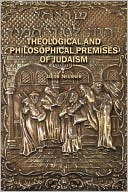Category Books
- Fiction Books & Literature
- Graphic Novels
- Horror
- Mystery & Crime
- Poetry
- Romance Books
- Science Fiction & Fantasy
- Thrillers
- Westerns
- Ages 0-2
- Ages 3-5
- Ages 6-8
- Ages 9-12
- Teens
- Children's Books
- African Americans
- Antiques & Collectibles
- Art, Architecture & Photography
- Bibles & Bible Studies
- Biography
- Business Books
- Christianity
- Computer Books & Technology Books
- Cookbooks, Food & Wine
- Crafts & Hobbies Books
- Education & Teaching
- Engineering
- Entertainment
- Foreign Languages
- Game Books
- Gay & Lesbian
- Health Books, Diet & Fitness Books
- History
- Home & Garden
- Humor Books
- Judaism & Judaica
- Law
- Medical Books
- New Age & Spirituality
- Nonfiction
- Parenting & Family
- Pets
- Philosophy
- Political Books & Current Events Books
- Psychology & Psychotherapy
- Reference
- Religion Books
- Science & Nature
- Self Improvement
- Sex & Relationships
- Social Sciences
- Sports & Adventure
- Study Guides & Test Prep
- Travel
- True Crime
- Weddings
- Women's Studies
Theological And Philosophical Premises Of Judaism »

Authors: Jacob Neusner
ISBN-13: 9781934843192, ISBN-10: 1934843199
Format: Hardcover
Publisher: Academic Studies Press
Date Published: May 2008
Edition: (Non-applicable)
Author Biography: Jacob Neusner
Book Synopsis
The sanctification of Israel, the people, endures [1] in the absence of the
cult and [2] in alien, unclean territory and [3] whatever the source of the
food that Israel eats. Israel¹s sanctity is eternal, un-contingent,
absolute. The sanctification that inheres in Israel, the people, transcends
the Land and outlives the Temple and its cult. Since the sanctity of Israel,
the people, persists beyond the Temple and outside of the Land, that
sanctity stands at a higher point in the hierarchy of domains of the holy
that ascend from earth to heaven and from Man to God.
That theological construction (Chapters One, Two and Three) gained support
from a science and a philosophy (Chapters Four, Five, and Six) that
accomplished the hierarchical classification of nature and of the social
order. Nature and society arose from the complex to the simple, and
conversely the many descended from the one. These represented the
theological givens, sustained by the philosophical premises, of Judaism. The
law constructed its propositions upon generalizations that pertained
universally, so bringing the Israelite norms into accord with natural law.
This emerges in the way in which the law sorted out mixtures by their types,
fully in line with the Stoic theory of mixtures. The philosophical
categorization and classification of the power of intentionality, shaded
over into the consideration of classes of causation and responsibility in
the Aristotelian manner from deliberate to inadvertent.
But how does Judaism integrate into a coherent system its premises, the
theological propositions, and its recurrent analytical protocols,the
philosophical principles. The book sets forth the integrating conceptions in
Chapters Seven and Eight. The philosophical and theological components are
integrated in an encompassing composition.
Table of Contents
Subjects
 Judaism & Judaica
Judaism & Judaica  Jewish Philosophy
Jewish PhilosophyChristianity
 Judaism & Judaica
Judaism & Judaica  Theology, Jewish
Theology, JewishChristianity
 All Religion
All Religion  General & Miscellaneous Religion
General & Miscellaneous ReligionNonfiction
 Philosophy
Philosophy  General & Miscellaneous Philosophy
General & Miscellaneous PhilosophyNonfiction
 Philosophy
Philosophy  Major Branches of Philosophical Study
Major Branches of Philosophical StudyNonfiction
 Social Sciences
Social Sciences  Jewish Studies
Jewish StudiesPhilosophy
 General & Miscellaneous Philosophy
General & Miscellaneous Philosophy  Jewish Philosophy
Jewish PhilosophyPhilosophy
 Major Branches of Philosophical Study
Major Branches of Philosophical Study  Religion, Philosophy of
Religion, Philosophy ofReligion Books
 Judaism & Judaica
Judaism & Judaica  Jewish Philosophy
Jewish PhilosophyReligion Books
 Judaism & Judaica
Judaism & Judaica  Theology, Jewish
Theology, JewishReligion Books
 All Religion
All Religion  General & Miscellaneous Religion
General & Miscellaneous ReligionScience & Nature
 Social Sciences
Social Sciences  Jewish Studies
Jewish StudiesSocial Sciences
 Jewish Studies
Jewish Studies  Jewish Philosophy
Jewish PhilosophyChristianity
 Christianity
Christianity  All Religion
All ReligionNonfiction
 Religion
Religion  All Religion
All ReligionReligion Books
 Christianity
Christianity  All Religion
All Religion
